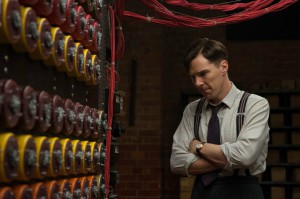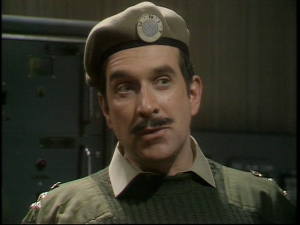 There is one thing that absolutely has to be said about The Imitation Game before we go any further.
There is one thing that absolutely has to be said about The Imitation Game before we go any further.
ALAN TURING WASN’T IN SCHOOL HOUSE, HE WAS IN WESTCOTT.
There, that’s off my chest. I was carefully watching for any Morse-like wormholes in the heart of Sherborne – the kind of thing whereby Morse can get between any two points in Oxfordshire in two minutes by driving down the High Street. Nothing of that kind was spotted in The Imitation Game; instead we just get a drastic repositioning of everything by about quarter of a mile to the east.
I know, I know, it made cinematic sense – it let them film generally in one central location with a background continuity they wouldn’t have got otherwise. Apart from that key point, is The Imitation Game accurate?
Well, in some ways, goodness knows. I don’t know if its depiction of everyday life at Bletchley is true or not – though as I gather there were several thousand people based at Bletchley at its height, you have to ask where they all were. I don’t know if its depiction of real people is true. I do think it does us all a favour by indicating that Bletchley life may not have been 100% harmonious. With personalities like that, under those stresses, there must have been ego clashes and eruptions, and it does us good to be reminded of it.
It does have to be said that the clashes and eruptions in the movie are fairly standard biopic stuff. Person who is Right is Unappreciated, given an Artificial Deadline, proves he is Right at the last minute. Cue next setback wherein a key problem is solved by an off the cuff remark by an Innocent Stranger. (I find it very hard to believe that they hadn’t already worked out that the German weather reports all ended with the same two words, one of which being “Heil”.) And so on. Meanwhile large chunks of history and the people who made it – Tommy Flowers, the various generations of Colossus – are excised in the name of brevity.
I was particularly irritated by the sequence of events whereby, in the space of one night: they crack Enigma; they work out the disposition of every Allied ship and German U-boat in the Atlantic; they work out that an attack on a convoy is due in about 10 minutes (and one of them has a brother on one of those ships); and Turing takes a stand that no, they Must Not Tell Anyone because then the Germans will know Enigma has been broken. Real life: it wasn’t their job to evaluate or pass judgement on any of their results. Their job was just to produce the results – people much higher up the chain took the decisions on what to do about them.
That said, the moment where the Bombe quietly and without fanfare spits out its first bit of plaintext from a cracked code is very well done – eerie, probably like it will be the first time a genuine AI talks back to someone. And there are many well done moments like that, with good performances by good actors. An especial wave to the set of actors playing the other people in Hut 8, who manage not to be swamped by Benedict Cumberbatch.
Turing is essentially portrayed as a functioning autistic – Sherlock without the innate social skills. Was that accurate? Again, I don’t know. He is depicted as being bullied at school and having serious problems reading social cues. And yet, we know Turing was an excellent runner, and any kind of athlete is going to be accepted to some degree at a place like Sherborne. Trust me on this. We also know – and indeed it’s a key point of his life story – that he had quite some experience in gay cruising, which I would have thought (and I’m speaking purely from theory here) would not be easy if you absolutely couldn’t read any kind of social cue at all. There again, maybe I’m just misjudging the Mancunian gay scene of the early 1950s. Or indeed of any location and period.
All in all, the movie does a good job of depicting (a) just how key the work of Bletchley, Turing and Hut 8 was, and (b) what a massive, massive injustice was done to this civilian war hero, to the point where you’re either welling up or quivering in fury. And it certainly can’t hurt to be reminded that this could happen in the Britain of still just about living memory, together with women not really being able to aspire to anything higher than being a secretary, and healthy teenagers dying suddenly of bovine tuberculosis. It’s well written, well made, well acted and generally fun, so see it if you can.

